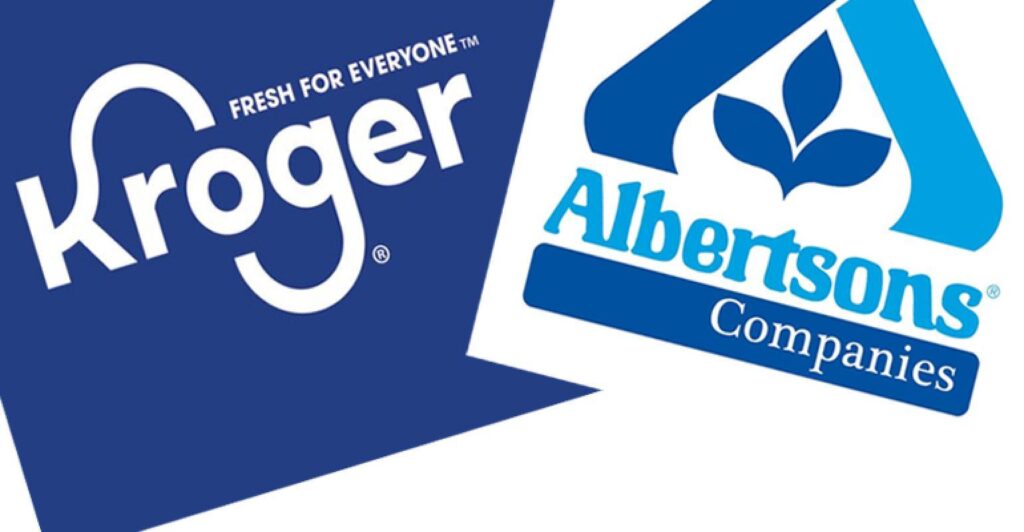Kroger, Albertsons to Sell 300 Stores to Seal Merger

Kroger, Albertsons to Sell 300 Stores to Seal Merger
From GlobeSt.com
By Jack Rogers
Retail supermarket giants Kroger and Albertsons are planning to sell up to 300 stores—mostly in areas where the grocery chains overlap—to try to fend off antitrust challenges to Kroger’s $25B acquisition of Albertson.
The merger, announcing in October, would combine the two largest supermarket chains in the US into an entity with a nationwide footprint of nearly 5,000 stores.
Earlier this month, a class-action lawsuit filed by a group of 25 US consumers argued that the merger would result in a grocery behemoth with a 36% share of the US market at a time when inflation is still gripping food prices.
“If Kroger’s proposed acquisition of Albertsons is consummated, the companies’ combined power will be used to increase prices for groceries, decrease the quality of food, eliminate jobs, close stores and offer less choice for consumers due to the overlap in geographic areas,” the lawsuit states.
In December, the Federal Trade Commission requested additional information from Kroger as part of its regulatory review of the proposed merger. The FTC review is still underway.
The two grocery chains are trying to head off these concerns by shedding stores in regions where both companies currently have locations, a divestiture that could be worth as much as $1B, Reuters reported.
In their filings, Kroger and Albertsons said their combined companies would only control about 13% of the US grocery market.
At a hearing of the antitrust subcommittee of the US Senate’s Judiciary Committee in November, the CEOs of Kroger and Albertsons testified that the merger will enable them to compete with retail giant’s Walmart, Costco and Amazon.
Kroger CEO Rodney McMullen told the Senate subcommittee that the days of shoppers buying all of their groceries at the same store once a week are gone. Today’s shoppers have adapted to omni-channel offerings, buying groceries at five or six locations.
“I just don’t see less competition going forward. It’s easy for customers to take a left turn or a right turn,” McMullen said, according to a report from CBS News.
Several senators expressed skepticism at the hearing that the merger would result in lower food prices for consumers. Sen. Mike Lee of Utah noted that Kroger approved a $1B stock buyback in 2021 as food prices were skyrocketing.
“If Kroger wasn’t passing on savings to consumers when it was competing with Albertsons, then why would we think it would pass on savings after it eliminates competition?” Lee asked.
In several states, consumers may not be aware they are loyal Albertsons customers: in Massachusetts, the company operates stores under two other brands, Shaw’s (with 55 stores in the Bay State) and Star Market (which has 21 locations in Greater Boston).


